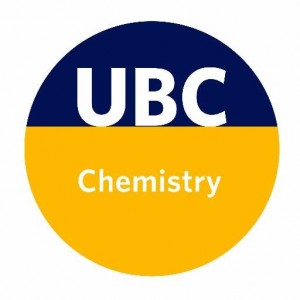During Celebrate Learning Week 2021 chemistry educators (and a few additional folks!) from the UBC Okanagan and Vancouver campuses came together via videoconference to discuss teaching and learning online during the pandemic. The discussion was thoughtful and lively, and the knowledge exchange will undoubtedly be influential for our fall course planning and beyond. The dual-campus CLW was a great opportunity for us to carve out some time to interact with one another. We don’t do it enough!
Open-book exams were something that many people in the group tried, and had successful implementations. Some will even transition from open-notes and book to “open everything” next year, and appreciate the ability to prepare assessment questions focusing more on conceptual understanding and problem solving rather than rote memorization and algorithms. Educators offered different perspectives, including the benefits of take-home exams where students were encouraged to work together if needed. Educational inequities brought to the forefront this year also demonstrate the importance of using and creating Open Educational Resources (OERs) as Vishakha Monga did this year.
Several people brought up challenges and successes with regards to facilitating student community and effective peer learning. Chris Addison described the success he had with encouraging students to work together in breakout rooms. Specifically, he found that asking students to share their thought processes and work products led to more beneficial discussions amongst students. However, the group applied Zoom breakout rooms with mixed success. We heard of situations where students would leave class when a breakout room activity was announced. We discussed that one potential preventative measure is to have students work in the same groups for several weeks. This is likely to reduce social anxiety and make the group work more productive. We also discussed that the chemistry task(s) and directions for group work were more successful when a very clear deliverable that was achievable and clear was the goal of the breakout session. Methods of enhancing trust amongst students led to increased engagement.
Several educators were really thrilled to see so many students attending online office hours, and most will offer both online and face-to-face office hours in the future. Thus, in some ways, remote instruction allows for more students to have informal contact with their professors.
The transition to remote instruction meant people had to find paperless ways to replace lab reports and exams. People praised Gradescope for its efficiency and ability to facilitate high-quality feedback to students. For labs, Stephen McNeil used fillable PDFs and will forever have their labs be paperless. In labs and lectures, the group concluded that incorporating academic integrity into the course syllabus and discussing academic integrity often was useful to communicate with students the standards of integrity expected of chemistry scholars.
Remote instruction also seemed to work really well when the topics involved technology and visualization. Sam Griffin shared that viewing three-dimensional catalyst pockets was a challenge over a webcam, but worked well when students could open and manipulate their own jmol representation on a webpage.
Kayli Johnson employed Telegram for direct messaging with students and Loom to quickly prepare and upload personalized videos to answer individual student questions, and found these tools to be far more efficient and effective than responding by email or other traditional channels.
We discussed exciting ideas such as increasing the reach and impact of outreach activities. Zac Hudson engaged high school students from remote communities via the Verna J Kirkness Education Foundation program. While it is fantastic when students can join his research group for a week in person, they were able to impact many more young people via videoconference.
If you have any questions about what was discussed, please reach out to any of the session organizers, Tamara Freeman, Stephen McNeil, and Jackie Stewart. We are working on planning our next discussion session soon.
